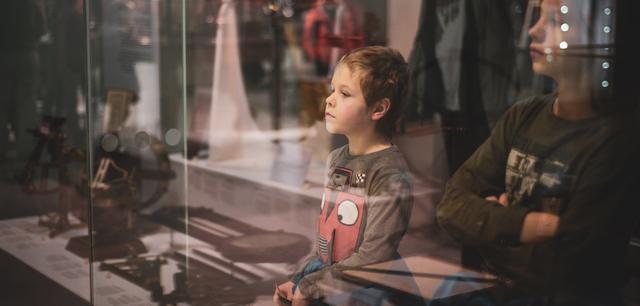Museums Articles
Museums For Kids In The UK
Museums in the UK offer a dynamic and enriching environment for children, serving as gateways to exploring the grand tapestry of history, art, and science. Engaging with these institutions allows children to embark on a journey through time and ideas, making them a favourite choice for family outings that combine fun with educational value. The UK's long tradition of curating museums is woven into its cultural fabric, with establishments like the Ashmolean Museum in Oxford charting their origins to as early as 1683. Since then, the landscape has blossomed to include over 3,000 museums, each tailored to cater to diverse interests, from cutting-edge science museums to immersive history exhibits, ensuring there is something to spark curiosity in every young mind.
These museums not only preserve significant artefacts and stories but are also specially designed to be accessible and enjoyable for the younger audience. Whether it’s through interactive exhibits that encourage tactile learning or themed guided tours that bring historical events to life, museums in the UK are committed to creating memorable learning experiences. Children are invited to step into recreated historical settings, conduct their own experiments at science stations, or unleash their creativity at art workshops, all within the walls of these historical institutions.
Accessibility is a key focus, with many museums offering special programmes or free entry days to ensure all children, regardless of background, can explore and learn. This accessibility further promotes inclusive learning experiences and fosters a sense of community and shared history among diverse groups of young visitors. This rich mosaic of opportunities available in UK museums plays a crucial role in the educational landscape, providing children with a unique blend of learning and entertainment that is tailored to their developmental needs and interests.
The Benefits of Museums
Museums are not just treasure troves of knowledge but also nurturing grounds for the physical and mental well-being of children. Engaging with varied exhibits fosters a deeper understanding of multiple subjects, contributing significantly to cognitive development and creative capacities. Interaction with displays sets a tangible, interactive learning environment apart from the passive absorption often experienced in traditional classrooms. This dynamic interaction can invigorate a child’s curiosity and critical thinking skills.
Beyond mental stimulation, museums also encourage substantial levels of physical activity. Exploring large museum spaces can be akin to a mini workout, promoting healthier, active habits. This is especially beneficial in today’s digital age, where sedentary lifestyles are increasingly common among children. Socially, museums serve as communal hubs, allowing children to interact with peers who have similar interests, enhancing their social skills and empathy through shared experiences.
Moreover, the calm yet stimulating atmospheres of museums can offer a respite from daily stressors, providing a serene environment that supports mental health. The sensory experiences, from visual arts to interactive science exhibits, help in alleviating anxiety and boosting overall psychological well-being. Thus, museum visits encapsulate a holistic approach to a child’s health, supporting their educational, physical, and emotional development in a unique, enriching manner.
FAQs
Q1: What are some recommended museums for children in the UK? A: Museums like the Science Museum in London, the National Railway Museum in York, and the World Museum in Liverpool are highly recommended for children. These museums offer engaging and interactive exhibits that are both fun and educational, catering specifically to young learners.
Q2: Are there any age-specific exhibits available in UK museums for kids? A: Yes, many museums in the UK have exhibits tailored to different age groups. For instance, children's museums often feature hands-on activities designed to match developmental stages, helping to ensure that each child's visit is both informative and age-appropriate.
Q3: Can families participate in activities together in UK museums? A: Absolutely! UK museums often host family workshops and events that allow children and their guardians to learn and participate together. Activities can range from crafts and storytelling to more in-depth workshops related to the exhibits.
Q4: What is the educational benefit of taking kids to museums in the UK? A: Visiting museums helps enrich a child's understanding of diverse subjects such as history, science, and art. It enhances their learning by providing real-life contexts and interactive experiences that books or traditional classroom settings cannot offer.
Q5: During what times of the year are UK museums most kid-friendly? A: While museums in the UK are generally child-friendly year-round, many offer special activities and programmes during school holidays and summer breaks. These times typically feature additional workshops and events specifically designed for children and families.









